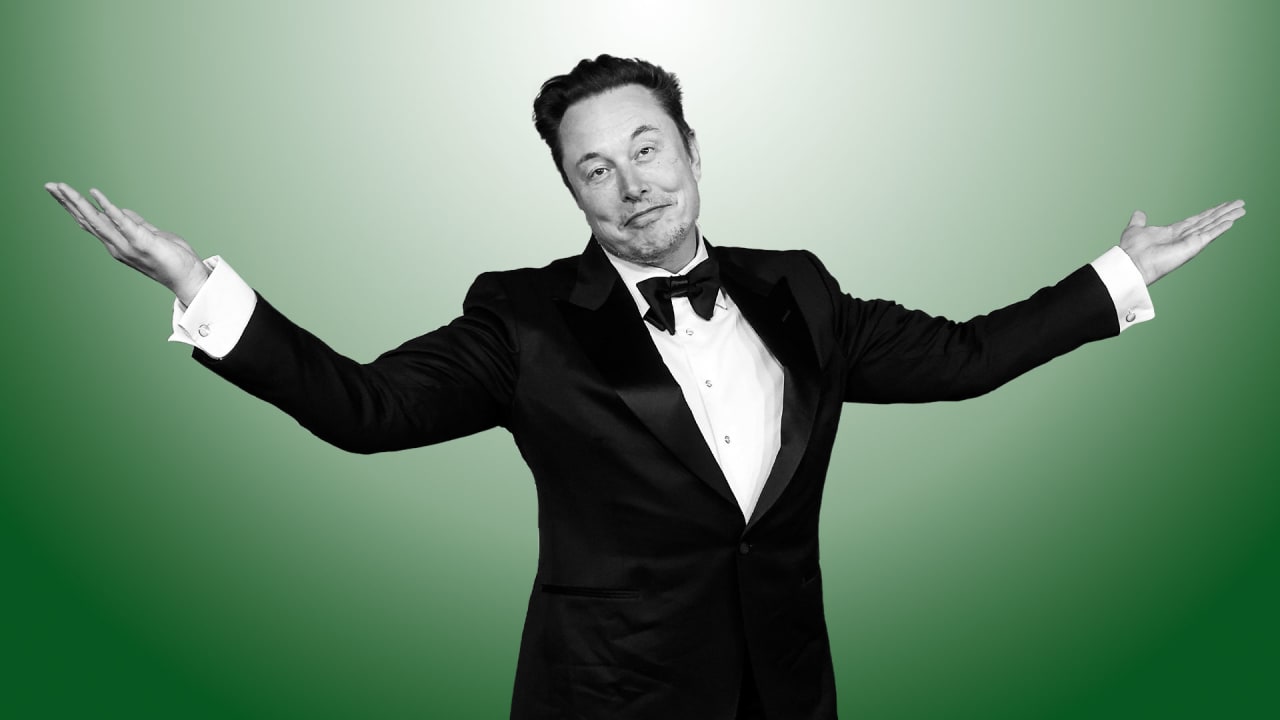With Tesla stocks trading at their lowest in almost a year, the EV carmaker has delivered an urgent new message to shareholders: Thanks to a Delaware court nullifying the pay package in January, Elon Musk still hasn’t received any of his earth-shattering $56 billion payout, and they must act to get him paid. Oh, and Tesla wants the amount to be the exact same as before: the largest compensation plan ever awarded in corporate history.
In a proxy filing published Wednesday, Tesla asked shareholders to vote yes for a second time on Musk’s whopper of a pay package. The company noted shareholders will also have an opportunity to vote on moving Tesla’s incorporation to Texas—payback, of sorts, against Delaware for the chancery court ruling, which characterized Musk’s pay as an “unfathomable sum.” (“Never incorporate your company in the state of Delaware,” Musk posted on X afterwards.)
This news comes just days—three of them—after Musk announced Tesla would be eliminating one-tenth of its global workforce, and told the other 90%: “I would like to thank you in advance for the difficult job that remains ahead.”
Gargantuan as it was when Musk accepted it in 2018, his pay package did not include a salary. Instead, the offer was for 304 million options, structured in 12 tranches, each tied to performance criteria. Each tranche was roughly equivalent to 1% of Tesla’s outstanding shares, worth about 12% equity in the company once paid in full. On January 30, the Delaware Chancery Court struck that landmark package down, declaring it unfair to shareholders and arguing that Musk obtained it through sham board negotiations. (The court’s actual words were that Tesla’s directors—a group that included Musk’s brother, some close friends, and others with financial ties to him—behaved like “supine servants of an overweening master” who were not after investors’ best interests.)
But in the proxy filing, Tesla board chair Robyn Denholm argues voting a second time for Musk’s $56 billion is a vote for “corporate democracy and stockholder rights.” As she tells shareholders, “The Delaware Court second-guessed your decision,” and as a result, “Elon has not been paid for any of his work for Tesla for the past six years that has helped to generate significant growth and stockholder value.”
Denholm doesn’t mention the reason Musk’s $56 billion package was struck down is because a Tesla shareholder demanded precisely that relief in a 2018 lawsuit. That investor, Richard Tornetta, a heavy metal drummer, criticized Musk’s pay as excessive and the board as being in his pocket.
Growing increasingly annoyed by January, Musk began threatening to focus his energy elsewhere, like on, say, any of his other five companies—SpaceX, the Boring Company, Neuralink, xAI, and of course X—unless he’s given an even larger ownership share of Tesla. (He wants 25%, nearly double his current stake: “Enough to be influential, but not so much that I can’t be overturned.”)
Wisely, perhaps, Tesla has chosen to let that one lie. But the board argues in the proxy statement that shareholders owe Musk a hefty payday because he has produced such an exceptional return on their investment. The biggest problem with that is, well, their timing: Tesla stock has tumbled 37% this year. The ink is still wet on the layoff headlines. Two senior executives have left; one of them—Rohan Patel, VP of public policy and business development—cited “big overall changes” at Tesla as the reason why.
It’s two weeks out from Tesla posting the first vehicle delivery decline in four years, amid EV sales declines overall. And Tesla’s inventory discounts that used to save buyers thousands of dollars just got ditched, too.
In recent days, buyers waiting for Cybertrucks also say they’ve received “confusing” messages warning about an issue with “the preparation of your vehicle.” Incidentally, these delays follow a viral TikTok in which a new owner complained that somehow, his Cybertruck’s accelerator keeps getting stuck when he drives.
But Elon Musk needs his $56 billion. “So we are coming to you now so you can help fix this issue,” Tesla’s proxy says, “which is a matter of fundamental fairness and respect to our CEO.” Shareholders are being asked to “reinstate your vote” at June’s annual shareholder meeting, where this time they can “make it count.”
